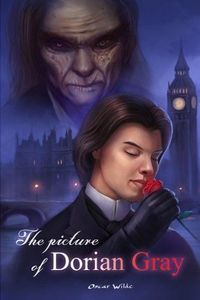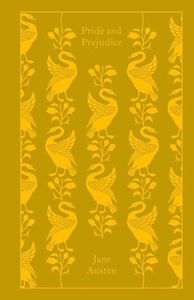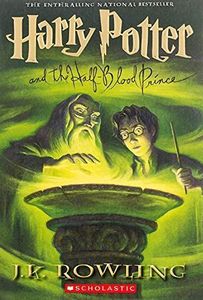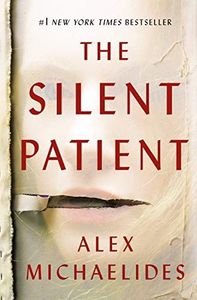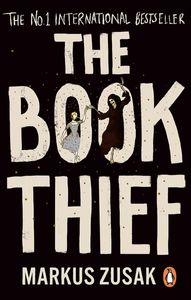
Possession A Romance
Reviews
Hmmmmm...
I'm not exactly sure on my thoughts with this one. I picked it up initially for research on twentieth century lit and feminism, and while there's plenty of content about those here, it's also incredibly lonngggg. The story drags on quite a bit and I think it's because of the unconventional storytelling. The story is told through snippets of poems, stories, letters, from people who are not the main characters. This removed me from the story and made me feel less attached to them.
There were some funny moments and I sort of enjoyed this style of storytelling (although I think it could've been executed differently and more succinctly). It's not my worse read this year but won't be picking it up again 🤷♀️.
Difficult to get through, only cause I don't like reading poetry
This was a very good read although I had a hard time with the modern day characters. I understood their motivations but just couldn't get myself to like them... The book cover bothered me quite a bit since I couldn't see the resemblance between the actors and the characters as Byatt describes them in the book -besides, I don't like either Gwyneth Paltrow or Aaron Eckhart, so that didn't help;) What I did like very much were the historical parts and how the letters between Ash and Christabel La Motte, their poems and stories and the diary written by LaMotte's cousin helped the story develop. I also found the (sometimes sardonic) description of academic researchers very interesting, even though the characters seemed somehow "less alive" than the historical ones.
This was a very good read although I had a hard time with the modern day characters. I understood their motivations but just couldn't get myself to like them... The book cover bothered me quite a bit since I couldn't see the resemblance between the actors and the characters as Byatt describes them in the book -besides, I don't like either Gwyneth Paltrow or Aaron Eckhart, so that didn't help;) What I did like very much were the historical parts and how the letters between Ash and Christabel La Motte, their poems and stories and the diary written by LaMotte's cousin helped the story develop. I also found the (sometimes sardonic) description of academic researchers very interesting, even though the characters seemed somehow "less alive" than the historical ones.
Brilliantly crafted story that intertwined so many relationships of all natures. Required diligent attention to detail and commanded the engagement of the reader. I was absolutely captivated by this story and its themes.
Fantastic, a book that reconciles me with 19th century novels and criticism. Very critical of University life and research in humanities, particularly of biographical criticism.
Not for everyone, really.
Nice try, but no. Terribly pretentious, exceedingly tedious, painfully melodramatic, of great depth but little understanding, Possession is a pretentious lame attempt at an old fashioned romance that fails on every level. Not worth reading, but has its good moments that finally redeems it in some way.
Highlights
"In the morning, the whole world had a strange new smell. It was the smell of the aftermath, a green smell, a smell of shredded leaves and oozing resin, of crushed wood and splashed sap, a tart smell, which bore some relation to the smell of bitten apples. It was the smell of death and destruction and it smelled fresh and lively and hopeful."
"'I—I've analysed it. Because I have the sort of good looks I have. People treat you as a kind of possession if you have a certain sort of good looks...'
"'...You can become a property or an idol. I don't want that. It kept happening...'
"'I feel as she did. I kept my defences up because I must go on doing my work. I know how she felt about her unbroken egg. Her self-possession, her autonomy. I don't want to think of that going. You understand?'"
"Did we not—did you not flame, and I catch fire? Shall we survive and rise from our ashes?"
"I wonder—if I had kept to my closed castle, behind my motte-and-bailey defences—should I have been a great poet—as you are?"
"He had time to feel the strangeness of before and after; an hour ago there had been no poems, and now they came like rain and were real."
"Know you not that we Women have no Power / In the cold world of objects Reason rules, / Where all is measured and mechanical? / There we are chattels, baubles, property, / Flowers pent up in vases with our roots sliced off, / To shine a day and perish."
"...women...are, as Christabel says, largely thought to be unable to write well, unlikely to try, and something like changelings or monsters when indeed they do succeed, and achieve something."
"Why should desire and the senses be so terrifying in women? Who is this author, to say that these are the fears of man, by which he means the whole human race? He makes us witches, outcasts, sorcières, monsters..."
"Work written only for one pair of eyes, the writer's, loses some of its vitality, but en revanche gains a certain freedom, and rather to my surprise, adult quality. It loses its desire, female as well as infantile, to charm."
"Look, she said, at your own rainy orchard, your own terrible coastline, with the eyes of a stranger, with my eyes, and you will see that they are full of magic and sad but of beautifully various color."
"All scholars are a bit mad. All obsessions are dangerous."
"Nothing endures for certain, but good art endures for a time, and I have wanted to be understood by those not yet born. By whom else, after all?"
"But let the Power take a female form / And 'tis the Power is punished. / All men shrink from dire Medusa and her writhing locks. / ...The feline Sphinx roamed free as air and smiled / In the dry desert at those foolish men / Who saw not that her crafted Riddle's clue / Was merely Man, bare man, no Mystery, / But when they found it out they split her blood / For her presumption and her Monstrous shape. / Man named Himself and thus assumed the Power / Over his Questioner, till then his Fate— / After, his Slave and victim."
"I am not at all safe, with you. But I have no desire to be elsewhere."
"Let me hold you, this is our night, and only the first, and therefore the nearest infinite."
"'Do you never have the sense that our metaphors eat up our world? I mean of course everything connects and connects—all the time—and I suppose one studies—I study—literature because all these connections seem both endlessly exciting and then in some sense dangerously powerful—as though we held a clue to the true nature of things?...
"'And then, really, what is it, what is this arcane power we have, when we see that everything is human sexuality? It's really powerlessness...
"'We are so knowing. And all we've found out, is primitive sympathetic magic. Infantile polymorphous perversity. Everything relates to us and so we're imprisoned in ourselves—we can't see things. And we paint everything with this metaphor—'"
"The headache introduces one to a curious twilight deathly world in which life and death seen no great matter."
"It is odd, when I think of it, that in chess the female may make the large runs and cross freely in all ways—in life it is much otherwise."
"We thought it was bad being young and —in some cases, not in mine—attractive—but it was worse when we grew older. There is an age at which, I profoundly believe, one becomes a witch, in such situations...through simple ageing—as always happened in history—and there are witch hunts—"
"...you take me out of myself and give me back—diminished—I am wet eyes—and touched hands—and lips am I too—a very present—famished—fragment of a woman—who has not her desire in truth—and yet has desire superabundantly—ah—this is painful—
...I was once something else—something alone and better—I was sufficient unto my self—and now I range—busily seeking with continual change."
"Were you happy I came? Were we godlike as you promised? Two earnest pacers, pointing diligent toes in the dust... We pass the time of day—and the Time of the Universe has a brief stop at our fingers' touch—who are we? who?—would you not rather have the freedom of the white page? Is it perhaps too late? Is our primaeval innocence gone?"
"I shall wait under the trees—from day to day, at your time—and look out for a woman like a steady upright flame and a grey hound poured along the ground like smoke—"
"We must come to grief and regret anyway—and I for one would rather regret the reality than its phantasm, knowledge than hope, the deed than the hesitation, true life and not mere sickly potentialities. All of which casuistry is only to say, my very dear, come back to the Park, let me touch your hand again, let us walk in our decorous storm together."
"...because I am a voice—a voice that would be still and small—crying plaintively out of a Whirlwind..."
